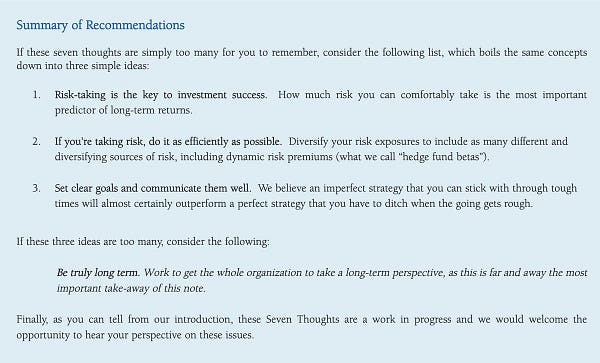The Rational Cloning: Weekly Ideas #72
Credit Bubble Stocks on Tobacco; Tweets/Ideas That Make You Go… Hmm 🤔
Welcome to the 72nd edition of the Rational Cloning Newsletter (Weekly Ideas Series).
Helping you discover the best ideas of others.
Happy cloning.
Credit Bubble Stocks - Tobacco Q4 Earnings
Tickers: MO 0.00%↑ PM 0.00%↑ BTI 0.00%↑
When we look at the FY 2022 results for our three tobacco companies (Philip Morris, Altria, and British American Tobacco), we have two questions: how did the cigarette businesses do, and how did the reduced risk ("nicotine as a service") businesses do?
Altria
Here is a good look at how the Altria cigarette and oral tobacco/nicotine businesses have been doing.
Earnings in the cigarette business have grown thanks to the time-honored formula of raising the price of the pack enough to offset big volume declines. As you saw in our earlier pipeline post, over the three year period from December 2019 through December 2022, the CPI rose by 15%. Altria has been able to raise the price of the pack by twice as much as inflation (31%) over the same period. Even with the volume declines, this has allowed the smokeable operating income to outpace inflation. (It should also be remembered that the high gas prices in 2022 made things very difficult for cigarette sales.)
Quick and dirty valuation of Altria: the market capitalization at $48 per share is $85 billion and the enterprise value is $114 billion. They own 10% of BUD which is worth about $12 billion at the current market price of $59 per share. Net income for Altria for 2022, adjusted for special items like non-cash charges, was $8.7 billion. So the market capitalization less BUD divided by that adjusted net income is about 8.4 times. That treats the Juul and Cronos stakes as worthless. We could also look at the Q4 operating earnings from the smokable and oral segments (before interest and tax) as being $11.8 billion annualized, which would be an 11.5% yield on the enterprise value.
Altria management really bungled M&A over the past five years, by paying so much for Juul that they had no ability or inclination to bid when a really great asset (Swedish Match) got put on the block. They now have basically no reduced risk program, except what they can salvage from the Juul investment. (Juul does still have the largest market share in vaping, at close to 40%, but Altria only owns a minority interest.) It seems quite likely that Altria's "on!" oral nicotine product (which they acquired in 2018) is depressing the profitability of the otherwise lucrative oral tobacco segment (selling Copenhagen and Skoal).
As long as the cigarette business is doing well (i.e. earning north of $10 billion), it would not seem to make sense to sell Altria at this valuation. But this company is a mess, and it would be nice to see it cleaned up.
One option would be to exit all of the businesses besides smokables and traditional oral tobacco: sell the BUD stake, sell the Juul interest, and shut down "on!". Suppose that you could get $15 billion for that. We sure wouldn't mind getting, say, a $3.76 special dividend (equivalent to a current year's) with the rest to be used for perhaps debt reduction or share repurchases.
The problem with this is that a tobacco company without a reduced risk platform is vulnerable in the current political climate. It seems essential to be able to point to a "future after tobacco" to keep society's current anti-nicotine mood at bay.
If Philip Morris does not want to reunite with Altria, then Altria is probably going to just limp along selling mostly cigarettes. So the key questions will be: will the tobacco earnings keep growing, and is there any chance that they can get control of Juul and turn it into a profitable business. It is still the best and most popular vape thanks to the superior nicotine chemistry.
Altria's adjusted earnings per share has grown from $4 in 2018 to $4.84 in 2022, a 4.9% compounded annual increase which was slightly faster than inflation. Paying ~8x earnings for a business with earnings growing faster than inflation, and with an option (even if unlikely) on Juul does not seem like a bad deal.
Philip Morris
There is always a strong contrast between Altria and Philip Morris, the way there is with Magellan Midstream and Enterprise Products. Cigarette sales in PM's foreign markets are declining more slowly, and they have a heated tobacco product (IQOS) that is seriously growing in foreign markets. ("Full-year smoke-free net revenues reached almost one third of total PMI and over 50% in 17 markets.")
PM's cigarette volumes fell 2.8% between Q4 2021 and Q4 2022, but its heated tobacco units grew 26.1%, with the result that overall volumes grew by 1.2%. Year-over-year, net revenues for combustible tobacco grew 1% and smokefree grew 27%, resulting in overall revenue growth of 8%. (All figures excluding the effect of Russia/Ukraine, currency, and acquisitions.)
PM's current market capitalization (at $102 per share) is $156 billion and the enterprise value is $200 billion. Net income for the year was $9 billion - PM shares trade at a much more expensive 17 times earnings. PM does not disclose segment earnings for cigarettes versus smokefree (only the revenues).
But PM has better cigarette businesses and better reduced risk businesses, especially now that they own Swedish Match and Zyn. Here was their discussion of Q4 results:
Now let's discuss ZYN's recent U.S. performance in more detail. Excellent progress continues with shipment volume growth of plus 37% in 2022 and plus 35% in Q4, reaching a record quarterly high. ZYN category volume share grew sequentially by one percentage point compared to the third quarter and by 2.2 percentage points compared to the prior year, further strengthening its position as the clear number one nicotine pouch brand despite continued heavy competitive discounting from less premium offerings. Importantly retail value share for ZYN remains strong at 75.7%, highlighting its premium positioning and high brand equity.
That is in contrast with Altria's "on!", which we suspect Altria is giving away at a loss. Of all of our nicotine businesses, PM seems best positioned to benefit from re-nicotinization (we think that Zyn is going to continue to grow gangbusters), except that it lacks a good vape product! It was reported last month that Juul is in talks with PM, Japan Tobacco, and Altria.
Notice that Altria and PM had roughly the same net income last year even though PM's market capitalization is 84% higher. Altria makes almost as much money selling just cigarettes in the U.S. as PM does selling cigarettes and IQOS to the entire rest of the world.
Maybe the best case scenario is for PM and Altria to reunite. Then they can have the #1 cigarette worldwide (Marlboro), the #1 oral nicotine product (Zyn), the #1 heated tobacco product (IQOS), and the #1 vape (Juul). They could shut down a bunch of junky also-ran products, and focus some serious lobbying might on getting rid of open-tank vaping competition.
British American Tobacco
BTI is an interesting hybrid of PM and Altria: they sell in the U.S. and the rest of the world, and they have some decent reduced risk products. BTI has a market capitalization (at $38 per share) of $84 billion and an enterprise value of $131 billion. Last year they earned about $8 billion, putting the shares at around 11 times earnings.
BTI does not report quarterly results, but we have their annual results for 2022 now in hand. Their combustibles volumes were down 5.2% for the full year 2022 versus 2021, and revenues were down about 1% in constant currency. The combustibles business earned about $14 billion in 2022, roughly the same as in 2021.
Their "new category" (reduced risk) product volumes were way up for 2022 versus 2021. Their vape (Vuse) volumes were up 14%, heated tobacco (glo) was up 26%, and modern oral (Velo) was up 22%. Revenues in constant currency for those products were up 44%, 27%, and 46%, respectively. The new categories businesses reduced their operating loss from $1.1 billion in 2021 to $450 million last year. They have said that they expect this category (which now represents 15% of total revenue) to be profitable in 2024.
BTI combines worse cigarette brands than what PM and MO have (they were especially dependent on menthol) with a reduced risk portfolio that is certainly better than what MO has and in some spots (Vuse vape) better than what PM has. Another possibility for industry M&A would be for BTI and MO to combine. As with the PM and MO combination possibility, the Altria cigarette earnings would be very meaningful to BTI.
Conclusion
We come away from this reflection thinking that the equal weighting of PM, MO, and BTI is still the right approach. There is no clear winner from an investment perspective, at least not yet, because of the wide dispersion in valuation.
Tweets That Make You Go… Hmm 🤔


















